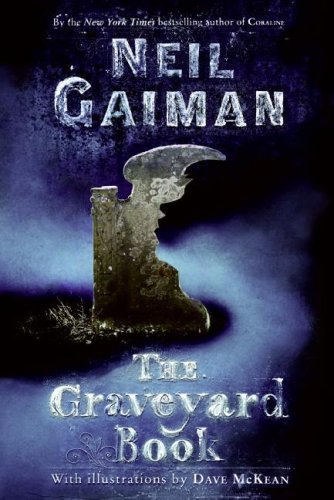 An Abundance of Katherines, by Printz Medal-winner John Green is the story of teenage prodigy Colin, who, along with his best friend Hassan, takes a summer road trip in the hopes if helping himself get over his latest girlfriend Katherine. Girls named Katherine are the only girls Colin dates, however, and all 19 of his Katherine-relationships ended badly. In addition to Colin's failures at love, he also is frustrated by his inability to achieve greatness. As he points out several times during the novel, prodigies are especially adept at learning things, but not necessarily at making grand discoveries. As he mulls over his lost loves, however, he begins to see a mathematical formula emerge which may just explain the relative success or failure of relationships. While he works out the math involved in his relationship equation, he and Hassan live for the summer in Gutshot, TN with a teenage girl and her mother in a Peptol Bismol-pink mansion. At the request of the mother, Colin and Hassan spend their days interviewing locals for a local history project. That's as far as I got.
An Abundance of Katherines, by Printz Medal-winner John Green is the story of teenage prodigy Colin, who, along with his best friend Hassan, takes a summer road trip in the hopes if helping himself get over his latest girlfriend Katherine. Girls named Katherine are the only girls Colin dates, however, and all 19 of his Katherine-relationships ended badly. In addition to Colin's failures at love, he also is frustrated by his inability to achieve greatness. As he points out several times during the novel, prodigies are especially adept at learning things, but not necessarily at making grand discoveries. As he mulls over his lost loves, however, he begins to see a mathematical formula emerge which may just explain the relative success or failure of relationships. While he works out the math involved in his relationship equation, he and Hassan live for the summer in Gutshot, TN with a teenage girl and her mother in a Peptol Bismol-pink mansion. At the request of the mother, Colin and Hassan spend their days interviewing locals for a local history project. That's as far as I got.Now, because An Abundance of Katherines is on the 2010 Abraham Lincoln Illinois High School Book Award list, I am reluctant to say much more about this title, which has gotten excellent reviews in both respected book review journals as well as in Amazon's customer reviews section. In the interest of honesty, however, here goes: something that bothered me about the novel, which I attribute mostly to personal taste (or distaste, as the case may be) is the main character's constant navel-gazing and whining. "Buck up! Get over it!" was constantly running through my head, which I admit is a bit harsh when it comes to teen romance. I also was extremely annoyed by one of the character's refererring to herself as being "retarded", which she did on several occasions. Finally, I found the footnotes which provided additional information on little known facts which were peppered through the book to be a little show-offy and obnoxious.
So there you have it. I only got halfway through An Abundance of Katherines, but it's very possible that others might enjoy what I could barely slog through. After all, I wasn't a Twilight fan, so what do I know?! For me, An Abundance of Katherines rated a 2 out of 5 Bananas.
Abraham Lincoln Illinois High School Book Award 2010 Nominee

